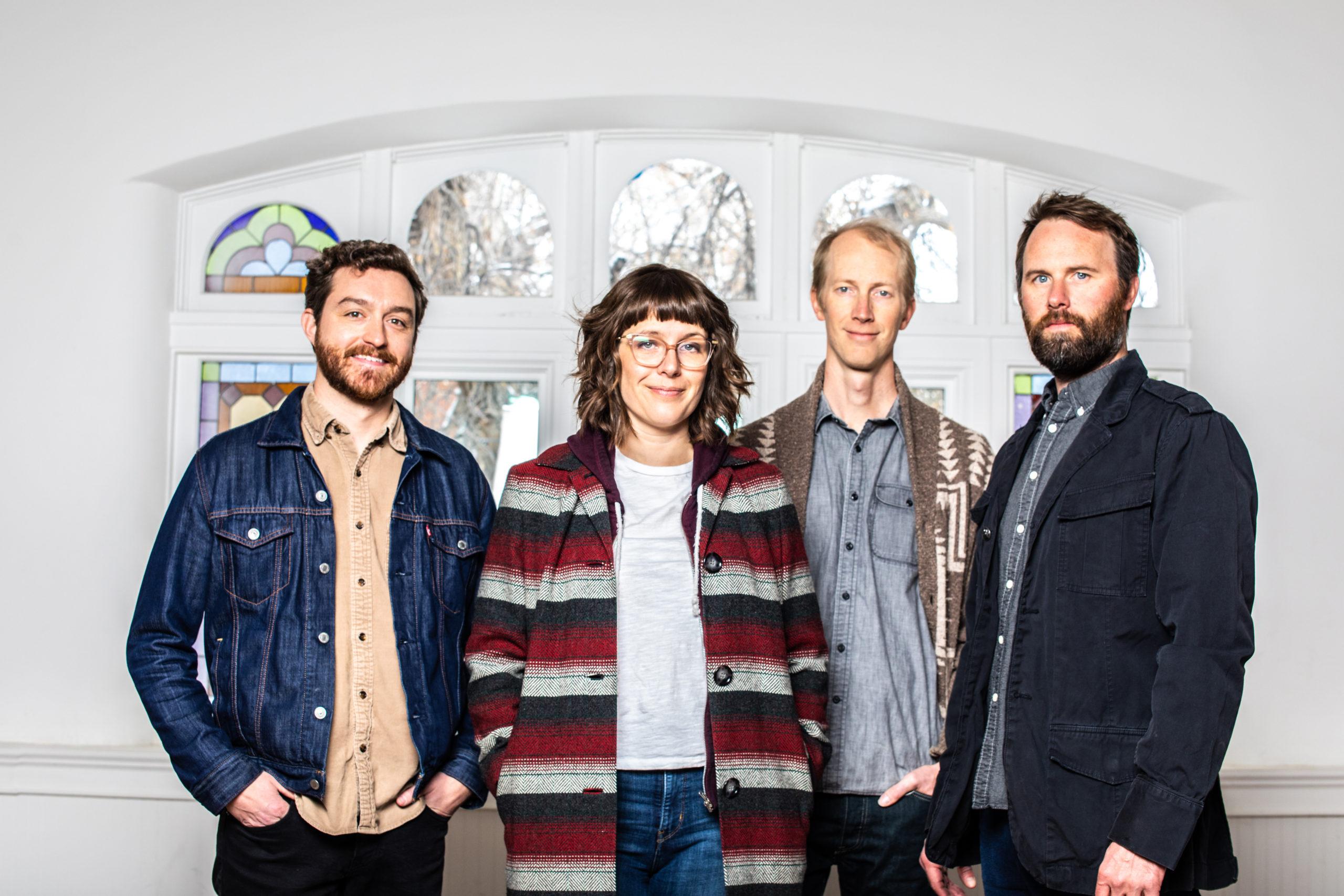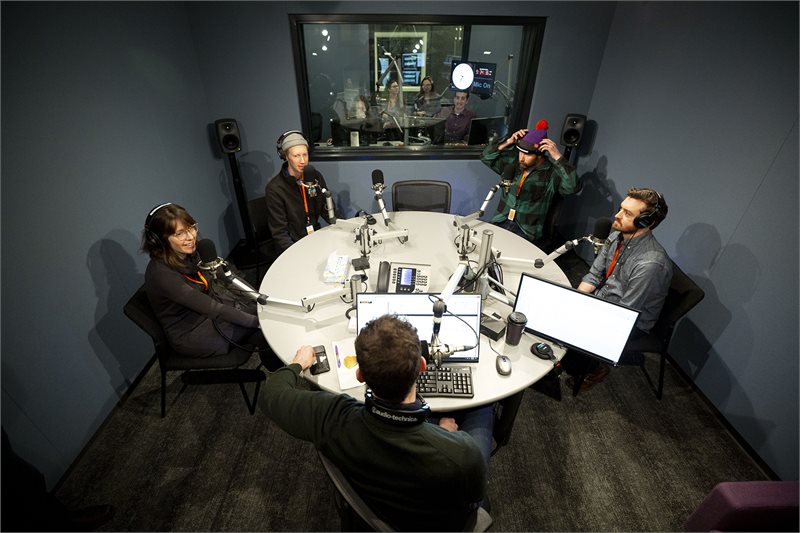
Colorado bluegrass band Trout Steak Revival got their big break when they won the band competition at the Telluride Bluegrass Festival in 2014.
That same year, they were deemed “Colorado's next great bluegrass band" by Westword.
They've been a mainstay on the scene ever since.
The Denver-based outfit just released their fifth full-length record, “The Light We Bring,” which marks an expansion of their sound to include brass, woodwinds and orchestral strings. And lyrically, the new batch of songs take on a more personal, slightly heavier weight.
Trout Steak Revival is made up of Bevin Foley on fiddle, Casey Houlihan on bass, Will Koster on dobro and guitar, and Travis McNamara on banjo. The band spoke with Colorado Matters about the new album, crockpot meals and playing for beer at the Buck Snort Saloon.

Interview Highlights
On discovering bluegrass around the campfire:
WK: “My dad was an art teacher, and he got a job being the art director at a summer camp called Camp Henry in Newaygo, Michigan. And Travis went there as a kid also, and we met when we were young and then we started working there. And Casey got a job working at the summer camp, too.”
TM: “It was like singalong stuff with the kids during the day, and at night it would be all the counselors hanging out around the campfire and just playing songs that we were into. It was more like Neil Young, Bob Dylan, and The Band. So, that at least got me into acoustic music and acoustic guitars and stuff like that. And then it was coming out to Colorado and starting to go to these bluegrass festivals, like the Telluride Bluegrass Festival. That was our Mecca pilgrimage that we would do every year with all of our friends.
Around those campfires, everybody was playing bluegrass songs. That was just like the language that was in Colorado and hearing all these cool songs from all these people that we didn't know before. Then we kind of fanned out the instrumentation and started picking up that language a bit."
On learning from their past experience with producer Chris Pandolfiof The Infamous Stringdusters:
CH: “I think his input was invaluable on the last two albums, and so when we decided to produce [‘The Light We Bring’] ourselves, we definitely were trying to take everything we learned from that, which was, really, it's not about perfection, it's about vibe, and it's about feel. We might do eight takes, but the role of a producer is really to zoom out a little bit and be sort of a guy that comes in without any pretense about what it's supposed to sound like.
So, when you listen to a take you're like, ‘Wow, that one has incredible energy.’ Like, yeah, there were a couple of mistakes maybe, or maybe not even, maybe it just wasn't perfect, but that's not what we're going for. So, really, Chris [Pandolfi], I think, brought that element to our studio experience.”
BF: “It gave us the ability to figure out what the best take was. But also, even before we got into the studio, I think Chris taught us a lot about arranging our songs and making sure they had good endings and beginnings.
I remember we were playing in Lyons during the RockyGrass Festival at a bar a long time ago. Greg Garrison told us, ‘You just have to have endings,’ because we would just look at each other and be like, ‘How are we going to end it?’ And then, we'd kind of like peter out or just do a ‘Shave and a Haircut’ kind of ending. Just like silly things. So, it's just like a simple thing, but I think we started learning that from everyone. And we're like, ‘Oh, that's a cool ending. Let's do that one.’”
On the evolution of Trout Steak Revival’s songwriting:
TM: “On this record especially, we're trying to write more from life. I think we're all kind of growing as songwriters … When we were younger, or maybe when I was younger, I think maybe you try to write more from a projection or there's more of a construction of a personality that you're trying to get out there.
But those things don't seem to hold water for me up on stage after time after time. They're not authentic, and the more that I can write about things that are actually happening to me and that I'm going through and that are places of vulnerable emotion that I'm experiencing right now, those ones, they just seem to connect a little bit better.”
WK: “There are moments when things can seem a little heavy, being out on the road, and I guess that was kind of the start of some of my lyric writing on [‘Arrows in the Dark’]. It opens up questions of like, ‘Well, if we are going to do this, how are we going to do this so that it feels great what we're doing?’ The analogy is, if you're fishing, and you only think about catching a big fish is the success of your day, then most of your day is not going to be that fun. So, we want to enjoy the fishing.”








